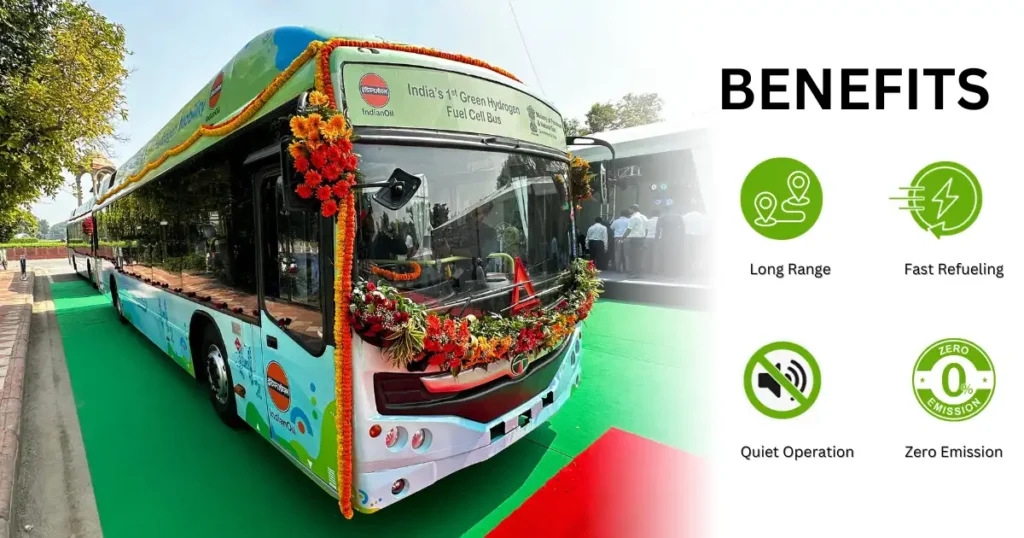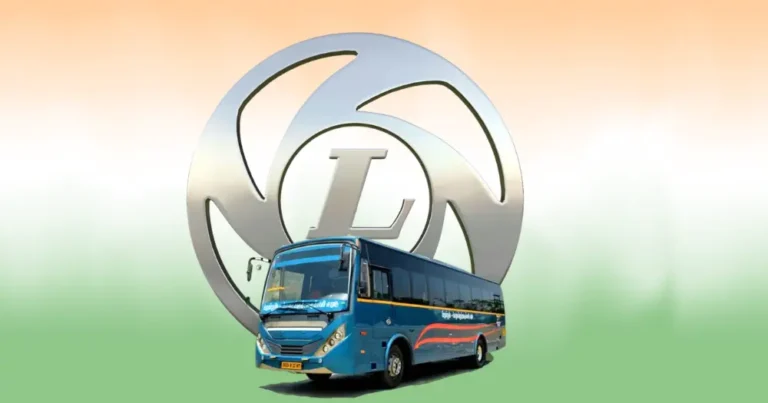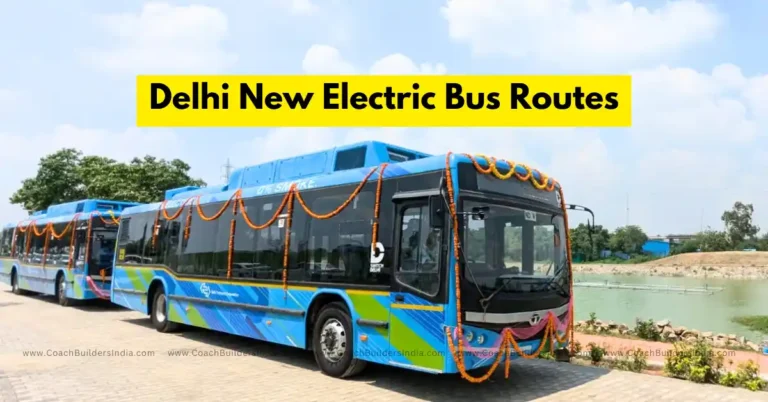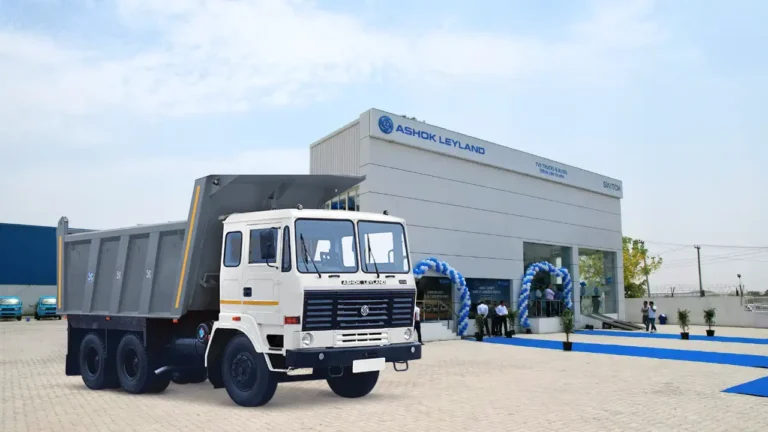Hydrogen Fuel Cell Buses Explained
Learn everything you need to know about hydrogen fuel cell buses in this informative article, including how they work, their benefits and challenges, their future potential, and more.

Hydrogen fuel cell buses are the latest buzzword in the public transportation industry in India. Especially after Delhi got India’s First ever Green Hydrogen bus yesterday, there have been a lot of discussions around this technology.
But while everyone is talking about them, not all of us know what they are or how they actually work.
In this article, we will explain everything you need to know about hydrogen fuel cell buses, including how they work, their benefits, and the current scenario challenges.
We will also discuss the future of these zero-emission buses and their potential to revolutionize the sustainable transportation industry.
What are Hydrogen Fuel Cell Buses in Simple Terms
So, what are hydrogen fuel cell buses? And why are they so important now?
Hydrogen fuel cell buses are a new type of sustainable bus that uses hydrogen fuel cells to generate electricity to power the bus.
Hydrogen fuel cell buses are sustainable buses meaning that they do not produce any tailpipe emissions. Since they are zero-emission buses, they are being utilized around the world to improve air quality, reduce greenhouse gas emissions, and combat climate change.
Please note that both hydrogen and battery-powered vehicles fall under the category of electric vehicles – just that the origin of the electric power is different.
How do Hydrogen Fuel Cell Buses Work?
Hydrogen fuel cells are electrochemical devices that convert hydrogen and oxygen into electricity and water.
Hydrogen fuel cell buses have four main components:
How the Hydrogen Fuel Cell Generates Electricity
The fuel cell takes hydrogen and oxygen, combining them in a chemical reaction that produces electricity. This process is the heart of how a hydrogen fuel cell bus generates power.
How the Electric Motor Powers the Bus
Once the fuel cell produces electricity, it’s sent to the electric motor. This motor acts as the engine of the bus, converting the electrical energy into mechanical energy, which moves the bus.
How the Battery Stores and Releases Energy
The battery in a hydrogen fuel cell bus plays a crucial role. It stores excess electricity generated by the fuel cell. When the bus needs an extra burst of power, such as during acceleration, the battery releases stored energy to assist the electric motor.
How the Hydrogen Storage Tank Stores Hydrogen
The hydrogen storage tank is like a reservoir for fuel. It holds the hydrogen until it’s needed to power the bus. This allows the bus to carry enough fuel for its journey, ensuring it can travel long distances without constant refueling.
And that’s about it. It is just as simple as that.
Benefits of Hydrogen Fuel Cell Buses

Hydrogen fuel cell buses have a number of benefits over traditional diesel buses, including:
The biggest benefits of hydrogen fuel cell buses are their quicker refueling time and frequently a greater kilometer range. Typically a hydrogen fuel cell can be charged in under 10 minutes and they can easily return a range of 350+ km.
How Hydrogen Fuel Cell Buses Reduce Air Pollution
Hydrogen fuel cell buses are champions in the fight against pollution. They emit only water vapor, eliminating harmful pollutants that contribute to poor air quality and respiratory issues.
How Hydrogen Fuel Cell Buses Can Help Mitigate Climate Change
By using hydrogen as a clean energy source, these buses play a role in reducing the overall carbon footprint. They minimize the release of greenhouse gases, aiding in the global effort to combat climate change.
How Hydrogen Fuel Cell Buses Can Improve Public Health
With no harmful emissions, hydrogen fuel cell buses contribute to better public health. They reduce the exposure to pollutants that can lead to respiratory problems and other health issues, creating a cleaner and healthier environment for communities.
So, what are the challenges of hydrogen fuel cell buses?
For one, hydrogen fuel cell buses are currently more expensive to purchase than even battery-powered electric buses.
This is because hydrogen is more expensive to make, store, and deliver compared to battery electric buses.
Another challenge of hydrogen fuel cell buses is the lack of infrastructure because of its complexity. Battery electric buses use the existing electric grid, which is simpler and cheaper.
Moreover, even when hydrogen production is optimized, it’s still less efficient for fueling vehicles compared to using a battery.
So overall, while hydrogen is a promising technology, the main challenge at this time is the cost involved.
Related Articles
- Delhi to Get India’s First Hydrogen Fuel Cell Bus on September 25
- Solaris Bags Largest Order of 130 Hydrogen Buses in Europe
- Innovative Sustainability: 2 Hydrogen Fuel Cell Buses Introduced to Nevada’s RTC Fleet
In an interview with the La Tribune Michaël Delafosse, resident (PS) of the Montpellier Metropolis, France, after a detailed assessment by expert auditors, the cost of operation of hydrogen fuel cells is six times more than battery electric buses.
“Hydrogen technology shows potential, but operational costs are a challenge. Currently, it would be six times pricier compared to battery electric buses. We’ll reassess in 2030 to see if hydrogen becomes more cost-effective.”
However, experts hold that as the technology becomes more widely adopted in the near future, the cost of hydrogen fuel cell buses is expected to come down.
I hope this article has given you a better understanding of hydrogen fuel cell buses. If you have any questions, please feel free to leave a comment below.
Hydrogen Buses in India as of 2024
In December 2021, Sentient Labs, a KPIT Technologies innovation lab, in collaboration with CSIR, NCL and CSIR-CECRI, introduced India’s first domestically developed hydrogen fuel cell bus. This 9-meter air-conditioned bus, with 32 seats, can cover approximately 450 km with 30 kgs of hydrogen.
In February 2023, Olectra Greentech, in technical partnership with Reliance, revealed their Hydrogen Bus. This 12-meter low-floor bus can be tailored to hold 32 to 49 passenger seats along with one for the driver. These buses have a range of 400 km on a full charge.
Come July 2023, BharatBenz and Reliance showcased a Hydrogen Fuel Cell-Based Concept bus during the 4th Energy Transitions Working Group meeting of India’s G20 in Goa’s Taleigao. This bus generates a gross system power of 127 kW, with a total of 105 kW.
Then, in August 2023, NTPC Limited, a leading Maharatna PSU under the Ministry of Power, initiated trials of hydrogen buses in the stunning terrain of Leh. These buses were manufactured by Ashok Leyland.
Then on September 25, 2023, Delhi got its first hydrogen fuel cell buses.
FAQs
The Ashok Leyland Hydrogen Buses provided to NTPC Limited cost Rs 2.5 crores each, under a worldwide expression of interest issued in April 2020.
The first time a hydrogen fuel cell bus hit the streets of India was in August 2023, when NTPC Limited initiated trials of hydrogen buses built by Ashok Leyland in Leh.
As of September 2023, the following companies have manufactured hydrogen buses in India – Ashok Leyland, Bharat Benz, Tata Motors Limited, and Satient Labs in collaboration with CSIR, NCL and CSIR-CECRI.
A hydrogen fuel cell bus can cover approximately 450 km with 30 kgs of hydrogen
Catch the Latest Bus Industry Updates, Exclusive Interviews, Bus News, and International Bus News on Coach Builders India. Download the latest issue of the The Bus Insider magazine for industry insights.








Hi I am Mohammed khizar
I now all about this